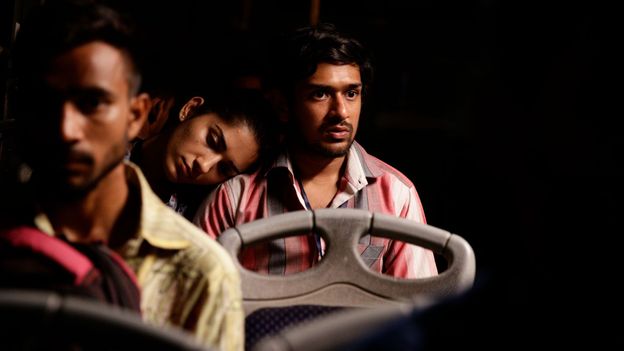On-screen, what’s interesting is how effective these various films have been in showing how a horrifying collective blindness around what constitutes consent runs deep – with predators seemingly blissfully unaware of the traumatic effects of their behaviour, while their victims shrug off the behaviour as part of “normal” life.
Walker’s How to Have Sex follows three girls on holiday in Greece. One of the girls is a virgin, but it’s almost expected by all three that she will go home having slept with a boy. Walker’s expertly crafted movie makes it apparent that the girl is not sure about losing her virginity on a beach to a guy she likes less than her best mate, but rather than stop the sexual encounter, she almost resigns herself to it. While difficult to watch, this encounter plays like the unfortunate behaviour of teenagers – but the next night, when the girl refuses the boy’s advances, he pounces while she is asleep, with her waking up as he is ready to have sex with her; she then resigns herself to it again. The horror comes not just from the action but also from the fact that Walker shows it so matter of factly, as if it is a rite of passage of being a girl coming of age today, a feeling reinforced by the reactions of her friends when she finally tells them.
In Khan’s In Flames, the horror of predatory male behaviour takes on a literal flavour with a shocking twist towards the end. However before then, the men are frightening enough for its young heroine Mariam, who has to navigate men indecently exposing themselves on the streets, and men complaining when she doesn’t add them as a friend on social media, while even a rickshaw driver who helps her get home after an accident blows his chivalry when he turns up back at her home the next morning. Her life in Karachi is shown as being one where she has little agency, as public spaces are dangerous for a girl to be out alone. Add to this her mother’s overly watchful eye on her at home, born of fear for her daughter, and it’s apparent that Mariam’s life is defined by the predatory behaviour surrounding her.
The most harrowing dismissal of predatory behaviour comes in Hania’s docudrama Four Daughters, in which teenage girls accept the advances of their mother’s boyfriend because they know there is no one who will listen to them, especially not their mother, and probably not the authorities in Tunisia and Libya. It’s clearly abuse, and it’s horrifying when one daughter says she accepted the man’s behaviour because “she was so happy to see the light in her mother’s eyes when she was with him”. It’s a terrible story of self-sacrifice and the acceptance of abuse, as the avenues to fight it are so limited.
Meanwhile in Haynes’ May December, Julianne Moore plays a teacher who has been in a 24-year relationship with one of her pupils, who she preyed on when he was 13. The film takes place 24 years later, and despite the teacher having been to jail, the young man continued his relationship with her, marrying and having children with her. Throughout, he fails to see how his wife’s behaviour has been coercive and abusive.












